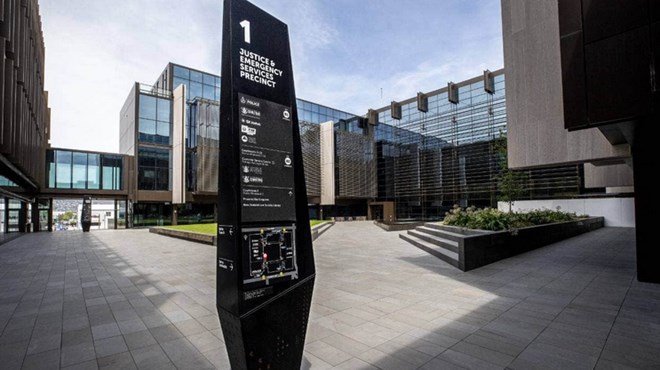Stuff.co
Monday December 13, 2021

A man who used a machete to settle a murky underworld debt avoided hitting any of his victim’s vital organs only through “a matter of good luck”.
Abdihafid Ali Mohamed, 27, whose family is from Somalia, still maintains his innocence even after a Christchurch District Court jury’s verdict. He plans to appeal.
He denied the charge of wounding with intent to cause grievous bodily harm for inflicting a 5-centimetre-long stab wound on the victim’s back, and a deep, 8cm-long cut long on his hip.
Judge Mark Callaghan sentenced Mohamed to seven years and two months in prison.
The judge said Mohamed had been contacted about a $40,000 debt.
“The debt was due to be recovered because of some criminal connection between you and people in Melbourne.”
Defence counsel Steve Hembrow had submitted that the machete attacks had not hit any vital organs.
But Crown prosecutor Will Taffs said that was a “matter of good luck rather than good planning”.
The incident happened in December 2020 when Mohamed was approached about repaying a $40,000 debt. He took steps to find out the address of the man who was contacting him and went to his house with a machete with a 20cm blade.
During the argument that followed, he held the blade to the victim’s throat.
The victim’s girlfriend arrived, but Mohamed got her to go outside and closed the blinds in the sleep-out before the struggle took place. He stabbed the victim in the hip and the back – the Crown says it indicates he had his back turned at that time.
Mohamed then fled, getting an accomplice to dispose of the machete. The victim had two substantial wounds and was in hospital for three days.
He now has two large scars which he can feel when he rolls over in bed. That reminds him of the attack, and he has pain from hip wound every day. He no longer feels safe in his house.
When Mohamed was identified and arrested four weeks later, he refused to give the police the passwords to his phones. He was charged with failing to assist a police search, and discharged without penalty on that charge. The Crown also dropped a charge of possession of cannabis.
The judge gave a sentence reduction because of Mohamed’s cultural background, but he told him: “You came armed with a machete and you used it to inflict life-threatening injuries.”
Judge Callaghan said Mohamed had been born in Kenya to Somalian refugee parents, one of nine siblings. After moving to Australia, he was recruited by gangs for running drugs, and turned to methamphetamine before spiralling to depression and self-pity.
When he was caught, he was then deported to New Zealand where he had family.
An uncle he was close to was killed in the Christchurch mosque massacre.
Hembrow said Mohamed was skilled and had aimed to be self-employed in the fields of music recording and fashion.
Judge Callaghan considered ordering an emotional harm reparation payment to the victim from $11,200 cash found at Mohamed’s home, but the court was told his brother had now repaid the debt that Mohamed had owed to criminal contacts.
That meant the money – now held by the Crown – should be paid to the office of the instructing solicitor, according to Hembrow.
The Crown and police may take separate legal action to force Mohamed to forfeit the cash.